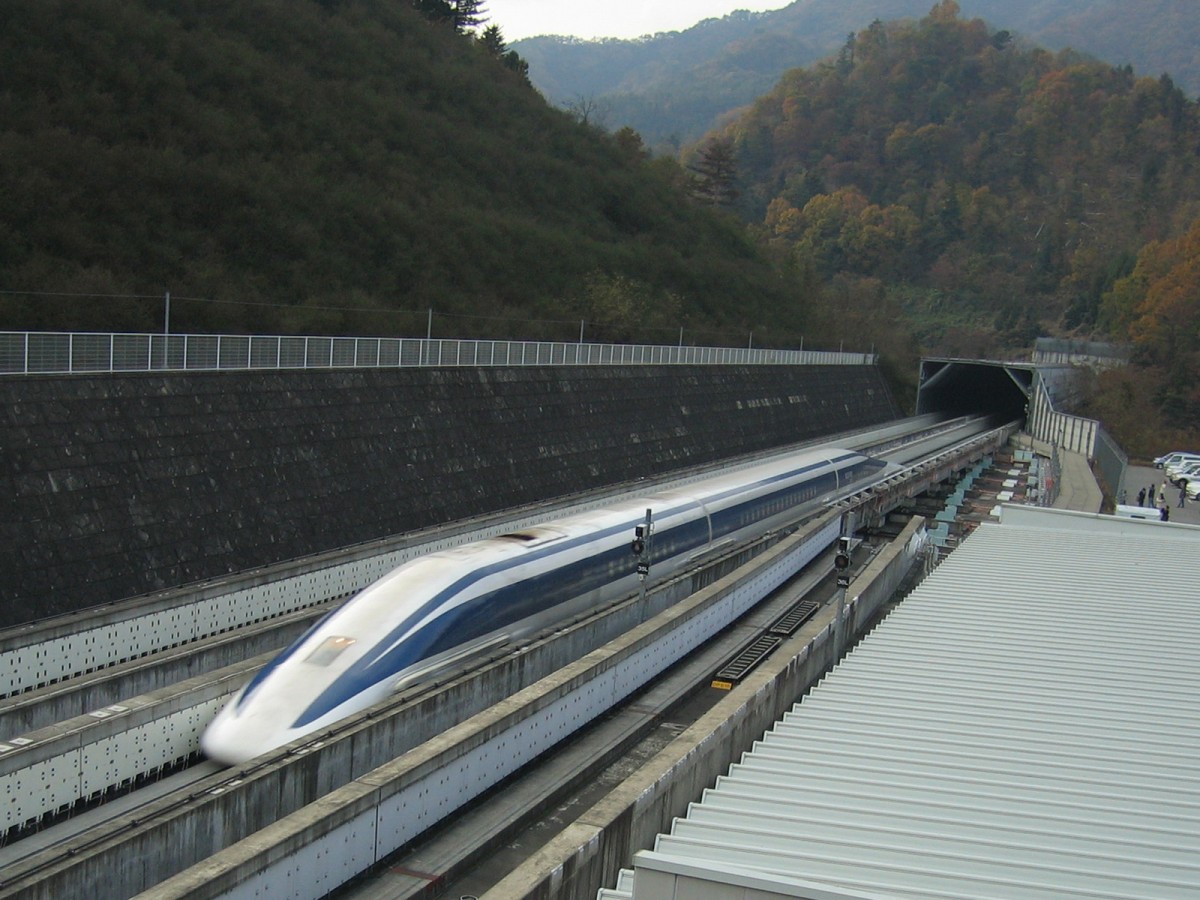No matter what the roadblocks might be in America, Japan is moving full speed ahead with testing on the super-fast maglev train that it hopes to bring to the U.S. northeast.
According to BBC News, 100 Japanese citizens were selected by lottery to ride the 27-mile test-run between Uenohara and Fuefuk. The Central Japan Railway Company is running the tests over eight days.
The maglev trains, which rely on superconductor magnetic levitation technology that allows them to literally float above the track, clocked in at 500 km/h, or 311 mph.
The BBC captured how happy this made people:
https://www.youtube.com/watch?v=2MsjvsAX-Og
The Japanese government wants to leave commuters here with the same kinds of smiles. In September, they offered up $5 billion for future construction of maglev between D.C. and Baltimore. The train could make the notoriously traffic-snarled trip between the two cities in 15 minutes.
Northeast Maglev, a company that backs the train and has an advisory board made up of ex-governors from mid-Atlantic states, Under Armour CEO Kevin Plank and other heavyweights, would need at least $5 billion more dollars and more public will to get the project afloat in the U.S. for the Baltimore-D.C. line alone. Once the train technology is proven, backers envision expansion of the line further up the I-95 corridor to New York City. At Maglev speeds, the D.C.-NYC trip would be less than an hour. The current Acela option takes nearly three hours.
But it’s definitely getting attention. CEO Wayne Rogers did a round of boosting in late October that put the idea in front of the influential (and deep-pocketed) readers of the Wall Street Journal, Bloomberg and New York Times. And the smiling citizens in Japan are keeping the conversation going.
As Wonkblog’s Emily Badger wrote of the BBC clip this week, “That scene is both a testament to Japan’s commitment to high-speed rail, and a reminder of how far the U.S. lags.”
Before you go...
Please consider supporting Technical.ly to keep our independent journalism strong. Unlike most business-focused media outlets, we don’t have a paywall. Instead, we count on your personal and organizational support.
3 ways to support our work:- Contribute to the Journalism Fund. Charitable giving ensures our information remains free and accessible for residents to discover workforce programs and entrepreneurship pathways. This includes philanthropic grants and individual tax-deductible donations from readers like you.
- Use our Preferred Partners. Our directory of vetted providers offers high-quality recommendations for services our readers need, and each referral supports our journalism.
- Use our services. If you need entrepreneurs and tech leaders to buy your services, are seeking technologists to hire or want more professionals to know about your ecosystem, Technical.ly has the biggest and most engaged audience in the mid-Atlantic. We help companies tell their stories and answer big questions to meet and serve our community.
Join our growing Slack community
Join 5,000 tech professionals and entrepreneurs in our community Slack today!

The person charged in the UnitedHealthcare CEO shooting had a ton of tech connections

The looming TikTok ban doesn’t strike financial fear into the hearts of creators — it’s community they’re worried about

Where are the country’s most vibrant tech and startup communities?



